1910년 12월 19일, 프랑스의 시인•소설가 장 주네 (Jean Genet, 1910 ~ 1986) 출생
장 주네 (프: Jean Genet, 1910년 12월 19일 ~ 1986년 4월 15일)는 프랑스의 시인, 소설가, 극작가다. 사조로는 실존주의에 들어간다.
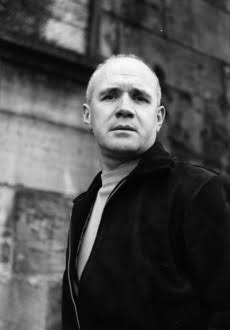
– 장 주네 (Jean Genet)
.출생: 1910년 12월 19일, 프랑스 파리
.사망: 1986년 4월 14일, 프랑스 파리
.국적: 프랑스
.언어: 프랑스어
.직업: 작가, 극작가, 시인, 영화 감독, 각본가, 소설가, 영상 편집자, 군인, 수필가, 정치운동가
.수상: Grand prix national des Lettres (1983)
star on Playwrights’ Sidewalk
.주요 작품: 꽃피는 노트르담, 하녀들
1910년 12월 19일 프랑스 파리에서 가정부인 어머니 카미유 가브리엘 주네의 사생아로 태어났다. 생후 7개월 만에 유기되어 파리 빈민 구제국에 위탁되었다가 프랑스 중부 산악지대 알리니의 한 가정에서 자랐다. 파리 근교 알랑베르 직업학교에서 인쇄술을 공부했다. 절도, 무임승차, 부랑죄 등으로 투렌의 메트레 교도소에 수감하면서 글쓰기를 시작했다. 교도소를 벗어나기 위해 군 입대를 지원했고, 모로코 원주민 부대, 알제리 원주민 부대에 근무하던 중 탈영해 프랑스, 스페인 등 유럽 일대를 떠돌아다녔다. 부랑자, 거지, 도둑 등으로 생활하다가 프렌 교도소에 수감된 동안 시 「사형수」(1942)를 시작으로 본격적인 작품 활동을 했다. 첫 소설 『꽃의 노트르담』(1942)으로 장 콕토의 열렬한 지지를 받았고, 이후 장폴 사르트르, 시몬 드 보부아르, 알베르토 자코메티 등의 도움을 받으며 창작의 꽃을 피웠다. 대표작으로 소설 『장미의 기적』(1946) 『도둑 일기』(1949) 외에도 희곡 「하녀들」(1946), 「발코니」(1957), 「병풍들」(1961), 예술론 『알베르토 자코메티의 아틀리에』(1957) 등 장르를 초월한 글쓰기를 했다. 1986년 4월 15일 『사랑의 포로』의 교정을 위해 파리에 머물던 중 사망하였고, 유언에 따라 모로코 지브롤터 해협의 라라슈에 묻혔다.
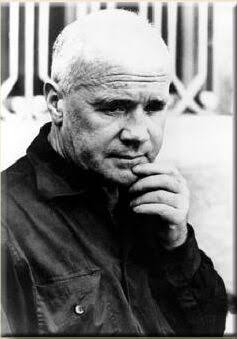
○ 생애 및 활동
장 주네 (Jean Genet)는 1910년 12월 19일, 프랑스 파리에서 태어났으며 어머니는 매춘부였다.
그는 일곱 달만에 빈민구제원에 맡겨졌다. 일곱 살 때 프랑스 북동부에 있는 알리니-앙-모르방 (프: Alligny-en-Morvan) 지방의 한 농가에 입양되었다. 10살 때 절도죄로 감화원에 수용되었다 풀려났다. 그 뒤로 독일, 스페인, 유고슬라비아, 네덜란드 등지를 남창, 거지, 절도, 마약 밀수 등 밑바닥 생활을 하면서 떠돌았다. 23살 때부터 여러 차례 절도 현행범으로 붙잡혀 프랑스 국내의 여러 형무소에서 복역하면서 1942년에는 시집 《사형수》, 이듬해인 1943년에 소설 《꽃피는 노트르담》을 발표하면서 작가 생활을 시작했다.
1949년에 절도죄로 종신형에 처할 위기에 처하나 장 폴 사르트르, 시몬 드 보부아르, 장 콕토, 파블로 피카소 등이 대통령에게 탄원하면서 그는 특별사면을 받았다. 2년 전인 1947년에 루이 주베가 《하녀들》을 상연하면서부터 희곡 창작을 시작했는데, 그보다 앞서 (1944) 발표한 《엄중한 감시》를 비롯해 《발코니》(1955), 《흑인들》(1955), 《병풍》(1956~61) 등이 상연되면서 격렬한 논쟁을 낳았다.
말년에는 미국의 쿠바 개입과 베트남 전쟁, 남아프리카공화국의 아파르트헤이트에 반대하는 운동을 펼쳤고, 68혁명, 팔레스타인 해방 운동에 참여하는 등 사회운동가로도 활동했다.
장 폴 사르트르는 평전 《성 주네》를 쓰면서 그의 문학을 “말로 나타낸 고행승 (苦行僧) 같은 실험”이라고 했다. 대표작으로는 시집 《사형수》, 소설 《도둑일기》, 《꽃피는 노트르담》, 예술 비평 《자코메티의 아틀리에》, 희곡 《하녀들》, 《발코니》, 《엄중한 감시》 등이 있다. 영화에도 손을 대 무성 영화 《사랑의 찬가》(1950)의 감독을 맡았었고, 영화 각본을 여러 편 썼다.
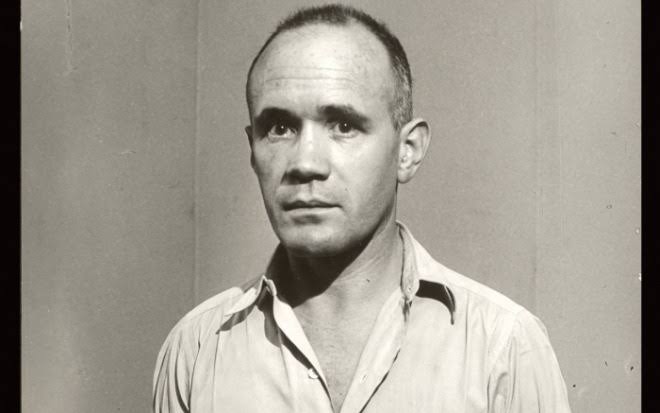
○ 저작
- 번역서
.예술 비평
윤정임 옮김, 《자코메티의 아틀리에》, 열화당, 2019년 1월 10일
상동, 《렘브란트》, 상동, 2020년 9월 10일
.소설
박형섭 옮김, 《도둑일기》, 민음사, 2008년 8월 25일
성귀수 옮김, 《꽃피는 노트르담》, 문학동네, 2024년 8월 26일
.희곡
오세곤 옮김, 《하녀들》, 지만지드라마, 2020년 3월 24일
상동, 《엄중한 감시》, 상동, 2020년 9월 28일
이선화 옮김, 《발코니》, 상동, 2021년 12월 28일
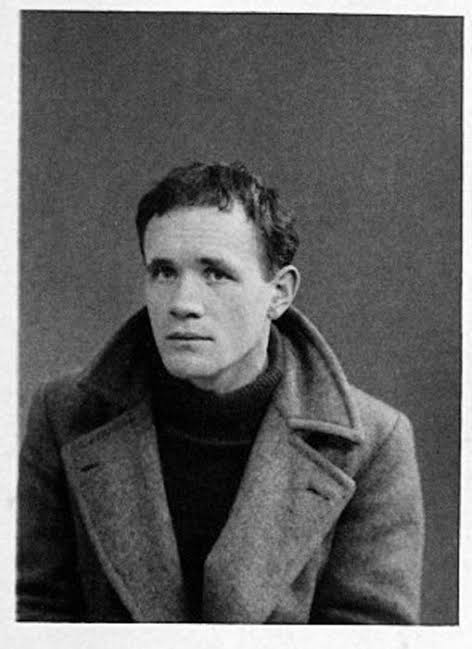
*List of works
- Novels and autobiography
Entries show: English-language translation of title (French-language title) [year written] / [year first published]
Our Lady of the Flowers (Notre Dame des Fleurs) 1942/1943
Miracle of the Rose (Miracle de la Rose) 1946/1951
Funeral Rites (Pompes Funèbres) 1947/1953
Querelle of Brest (Querelle de Brest) 1947/1953
The Thief’s Journal (Journal du voleur) 1949/1949
Prisoner of Love (Un Captif Amoureux) 1986/1986
- Drama
Entries show: English-language translation of title (French-language title) [year written] / [year first published] / [year first performed]
′adame Miroir (ballet) (1944). In Fragments et autres textes, 1990 (Fragments of the Artwork, 2003)
Deathwatch (Haute surveillance) 1944/1949/1949
The Maids (Les Bonnes) 1946/1947/1947
Splendid’s 1948/1993/
The Balcony (Le Balcon) 1955/1956/1957. Complementary texts “How to Perform The Balcony” and “Note” published in 1962.
The Blacks (Les Nègres) 1955/1958/1959 (preface first published in Theatre Complet, Gallimard, 2002)
Her (Elle) 1955/1989
The Screens (Les Paravents) 1956-61/1961/1964
Le Bagne French edition only
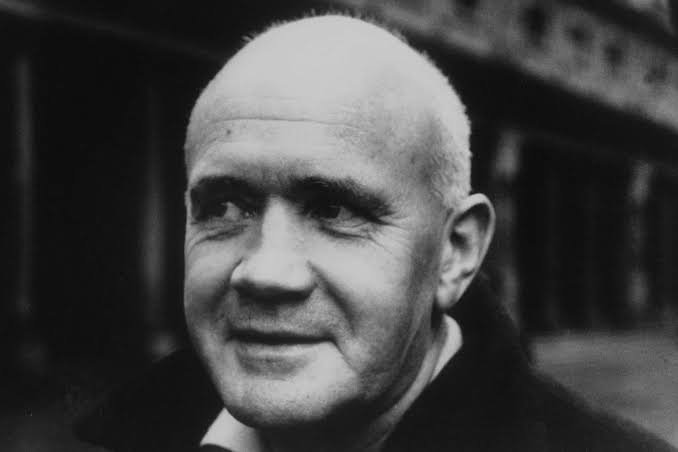
- Cinema
Un chant d’amour (1950)
Haute Surveillance (1944) was used as the basis for the 1965 American adaptation Deathwatch, directed by Vic Morrow.
Les Rêves interdits, ou L’autre versant du rêve (Forbidden Dreams or The Other Side of Dreams) (1952) was used as the basis for the script for Tony Richardson’s film Mademoiselle, made in 1966.
Le Bagne (The Penal Colony). Written in the 1950s. Excerpt published in The Selected Writings of Jean Genet, The Ecco Press (1993).
La Nuit venue/Le Bleu de L’oeil (The Night Has Come/The Blue of the Eye) (1976–78). Excerpts published in Les Nègres au port de la lune, Paris: Editions de la Différence (1988), and in The Cinema of Jean Genet, BFI Publishing (1991).
“Le Langage de la muraille: cent ans jour après jour” (The Language of the Walls: One Hundred Years Day after Day) (1970s). Unpublished.
- Poetry
.Collected in Œuvres complètes (French) and Treasures of the Night: Collected Poems by Jean Genet (English)
“The Man Sentenced to Death” (“Le Condamné à Mort”) (written in 1942, first published in 1945)
“Funeral March” (“Marche Funebre”) (1945)
“The Galley” (“La Galere”) (1945)
“A Song of Love” (“Un Chant d’Amour”) (1946)
“The Fisherman of the Suquet” (“Le Pecheur du Suquet”) (1948)
“The Parade” (“La Parade”) (1948)
.Other
“Poèmes Retrouvés”. First published in Le condamné à mort et autres poèmes suivi de Le funambule, Gallimard
Spitzer, Mark, trans. 2010. The Genet Translations: Poetry and Posthumous Plays. Polemic Press. See www.sptzr.net/genet_translations.htm
.Note
Two of Genet’s poems, “The Man Sentenced to Death” and “The Fisherman of the Suquet” were adapted, respectively, as “The Man Condemned to Death” and “The Thief and the Night” and set to music for the album Feasting with Panthers, released in 2011 by Marc Almond and Michael Cashmore. Both poems were adapted and translated by Jeremy Reed.
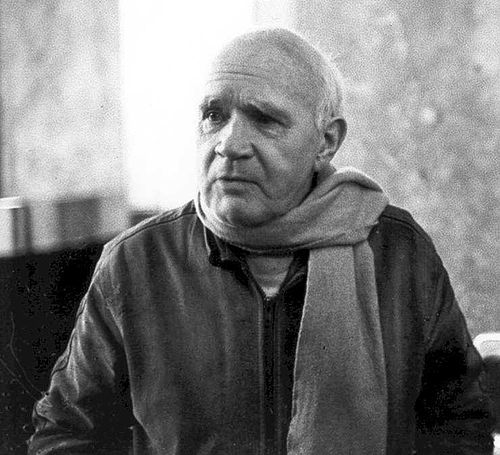
- Essays on art
.Collected in Fragments et autres textes, 1990 (Fragments of the Artwork, 2003)
“Jean Cocteau”, Bruxelles: Empreintes, 1950)
“Fragments”
“The Studio of Alberto Giacometti” (“L’Atelier d’Alberto Giacometti”) (1957).
“The Tightrope Walker” (“Le Funambule”).
“Rembrandt’s Secret” (“Le Secret de Rembrandt”) (1958). First published in L’Express, September 1958.
“What Remains of a Rembrandt Torn Into Little Squares All the Same Size and Shot Down the Toilet” (“Ce qui est resté d’un Rembrandt déchiré en petits carrés”). First published in Tel Quel, April 1967.
“That Strange Word…” (“L’etrange Mot D’.”).
- Essays on politics
.Collected in L’Ennemi déclaré: textes et entretiens (1991) – The Declared Enemy (2004)
1960s
“Interview with Madeleine Gobeil for Playboy”, April 1964, pp. 45–55.
“Lenin’s Mistresses” (“Les maîtresses de Lénine”), in Le Nouvel Observateur, n° 185, 30 May 1968.
“The members of the Assembly” (“Les membres de l’Assemblée nationale”), in Esquire, n° 70, November 1968.
“A Salute to a Hundred Thousand Stars” (“Un salut aux cent milles étoiles”), in Evergreen Review, December 1968.
“The Shepherds of Disorder” (“Les Pâtres du désordre”), in Pas à Pas, March 1969, pp. vi–vii.
1970s
“Yet Another Effort, Frenchman!” (“Français encore un effort”), in L’Idiot international, n° 4, 1970, p. 44.
“It seems Indecent for Me to Speak of Myself” (“Il me paraît indécent de parler de moi”), Conference, Cambridge, 10 March 1970.
“Letter to American Intellectuals” (“Lettres aux intellectuels américains”), talk given at the University of Connecticut, 18 March 1970. first published as “Bobby Seale, the Black Panthers and Us White People”, in Black Panther Newspaper, 28 March 1970.
Introduction, Preface to George Jackson’s book, Soledad Brother, World Entertainers, New York, 1970.
May Day Speech, speech at New Haven, 1 mai 1970. San Francisco: City Light Books. Excerpts published as “J’Accuse” in Jeune Afrique, November 1970, and Les Nègres au port de la lune, Paris: Editions de la Différence, 1988.
“Jean Genet chez les Panthères noires”, interview with Michèle Manceau, in Le Nouvel Observateur, n° 289, 25 May 1970.
“Angela and Her Brothers” (“Angela et ses frères”), in Le Nouvel Observateur, n° 303, 31 août 1970.
“Angela Davis is in your Clutches” (“Angela Davis est entre vos pattes”), text read 7 October 1970, broadcast on TV in the program L’Invité, 8 November 1970.
“Pour Georges Jackson”, manifesto sent to French artists and intellectuals, July 1971.
“After the Assassination” (“Après l’assassinat”), written in 1971, published for the first time in 1991 in L’Ennemi déclaré: textes et entretiens.
“America is Afraid” (“L’Amérique a peur”), in Le Nouvel Observateur, n° 355, 1971. Later published as “The Americans kill off Blacks”, in Black Panther Newspaper, 4 September 1971.
“The Palestinians” (“Les Palestiniens”), Commentary accompanying photographs by Bruno Barbey, published in Zoom, n° 4, 1971.
“The Black and the Red”, in Black Panther Newspaper, 11 September 1971.
Preface to L’Assassinat de Georges Jackson, published in L’Intolérable, booklet by GIP, Paris, Gallimard, 10 November 1971.
“Meeting the Guaraní” (“Faites connaissance avec les Guaranis”), in Le Démocrate véronais, 2 juin 1972.
“On Two or Three books No One Has Ever Talked About” (“Sur deux ou trois livres dont personne n’a jamais parlé”), text read on 2 May 1974, for a radio program on France Culture. Published in L’Humanité as “Jean Genet et la condition des immigrés”, 3 May 1974.
“When ‘the worst is certain'” (“Quand ‘le pire est toujours sûr'”), written in 1974, published for the first time in 1991 in L’Ennemi déclaré: textes et entretiens.
“Dying Under Giscard d’Estaing” (“Mourir sous Giscard d’Estaing”), in L’Humanité, 13 May 1974.
“And Why Not a Fool in Suspenders?” (“Et pourquoi pas la sottise en bretelle?”), in L’Humanité, 25 May 1974.
“The Women of Jebel Hussein” (“Les Femmes de Djebel Hussein”), in Le Monde diplomatique, 1 July 1974.
Interview with Hubert Fichte for Die Zeit, n° 8 February 13, 1976.
“The Tenacity of American Blacks” (“La Ténacité des Noirs américains”), in L’Humanité, 16 April 1977.
“Chartres Cathedral” (“Cathédrale de Chartres, vue cavalière”), in L’Humanité, 30 June 1977.
“Violence and Britality” (“Violence et brutalité”), in Le Monde, 2 September 1977. Also published as preface to Textes des prisonniers de la Fraction Armée rouge et dernières lettres d’Ulrike Meinhof, Maspero, Cahiers libres, Paris, 1977.
“Near Ajloun” (“Près d’Ajloun”) in Per un Palestine, in a collection of writing in memory of Wael Zouateir, Mazzota, Milan, 1979.
“Interview with Tahar Ben Jelloun”, Le Monde, November 1979.
1980s
Interview with Antoine Bourseiller (1981) and with Bertrand Poirot-Delpech (1982), distributed as a videocassettes in the series Témoin. Extracts published in Le Monde (1982) and Le Nouvel Observateur (1986).
“Four Hours in Shatila” (“Quatre heures à Chatila”), in Revue d’études palestiniennes, 1 January 1983.
Registration No. 1155 (N° Matricule 1155), text written for the catalogue of the exhibition La Rupture, Le Creusot, 1 March 1983.
Interview with Rudiger Wischenbart and Layla Shahid Barrada for Austrian Radio and the German daily Die Zeit. Published as “Une rencontre avec Jean Genet” in Revue d’études palestiniennes, Autome 1985.
Interview with Nigel Williams for BBC, 12 November 1985.
“The Brothers Karamazov” (“Les Frères Karamazov”), in La Nouvelle Revue Française, October 1986.
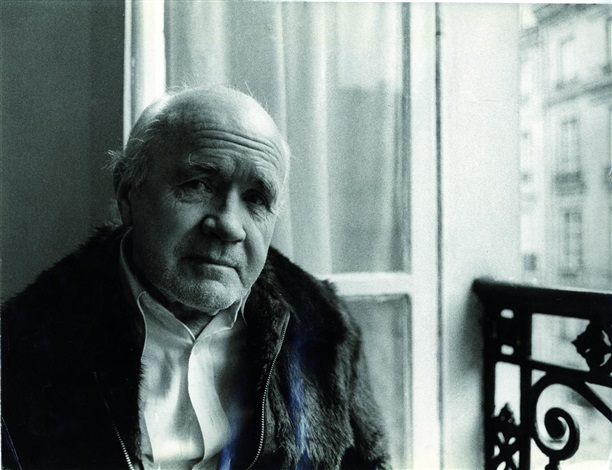
.Other collected essays
“The Criminal Child” (“L’Enfant criminel”). Written in 1949, this text was commissioned by RTF (French radio) but was not broadcast due to its controversial nature. It was published in a limited edition in 1949 and later integrated into Volume 5 of Oeuvres Completes.
.Uncollected
“What I like about the English is that They Are such Liars…”, in Sunday Times, 1963, p. 11.
“Jean Genet chez les Panthères noires”, interview with F.-M. Banier, in Le Monde, 23 October 1970.
“Un appel de M. Jean Genet en faveur des Noirs américains”, in Le Monde, 15 October 1970.
“Jean Genet témoigne pour les Soledad Brothers”, in La Nouvelle Critique, June 1971.
“The Palestinians” (Les Palestiniens), first published as “Shoun Palestine”, Beyrouth, 1973. First English version published in Journal of Palestine Studies (Autumn, 1973). First French version (“Genet à Chatila”) published by Actes Sud, Arles, 1994.
“Un héros littéraire: le défunt volubile”, in La Nouvelle Critique, juin-juillet 1974 and Europe-Revue littéraire Mensuelle, Numéro spécial Jean Genet, n° 808–809 (1996).
“Entretien avec Angela Davis”, in L’Unité, 23 mai 1975.
“Des esprits moins charitables que le mien pourraient croire déceler une piètre opération politique”, in L’Humanité, 13 août 1975.
“L’art est le refuge”, in Les Nègres au Port de la Lune, Paris: Editions de la Différence, 1988, pp. 99–103.
“Sainte Hosmose”, in Magazine littéraire, Numéro spécial Jean Genet (n° 313), September 1993.
“Conférence de Stockholm”, in L’Infini, n° 51 (1995).
“La trahison est une aventure spirituelle”, in Le Monde, 12 July 1996, p. IV.
“Ouverture-éclair sur l´Amérique”, in Europe-Revue littéraire Mensuelle, Numéro spécial Jean Genet, n° 808–809 (1996).
“Réponse à un questionnaire”, in Europe-Revue littéraire Mensuelle, Numéro spécial Jean Genet, n° 808–809 (1996).
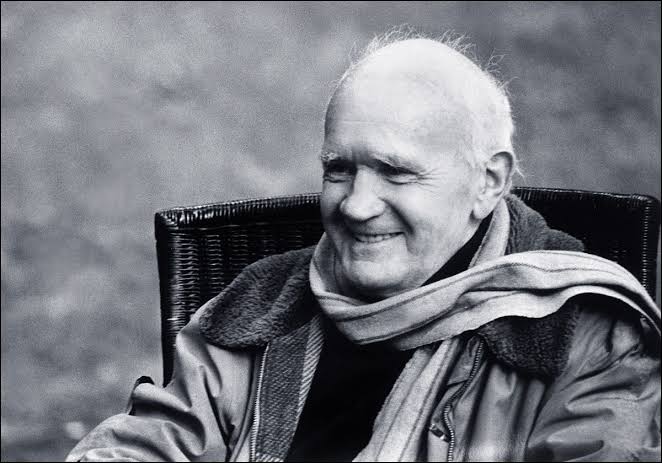
- Correspondence
.Collected in volume
Lettre à Léonor Fini Jean Genet’s letter, 8 illustrations by Leonor Fini. Also collected in Fragments et autres textes, 1990 (Fragments of the Artwork, 2003)
Letters to Roger Blin (“Lettres à Roger Blin”, 1966)
Lettres à Olga et Marc Barbezat (1988)
Chère Madame, 6 Brife aus Brünn French and German bilingual edition. Excerpts reprinted in Genet, by Edmund White.
Lettres au petit Franz (2000)
Lettres à Ibis (2010)
.Collected in Théâtre Complet (Editions Gallimard, 2002)
“Lettre a Jean-Jacques Pauvert”, first published as preface to 1954 edition of Les Bonnes. Also in “Fragments et autres textes”, 1990 (Fragments of the Artwork, 2003)
“Lettres à Jean-Louis Barrault”
“Lettres à Roger Blin”
“Lettres à Antoine Bourseiller”. In Du théâtre no1, July 1993
“Lettres à Bernard Frechtman”
“Lettres à Patrice Chéreau”
.Collected in Portrait d’Un Marginal Exemplaire
“Une lettre de Jean Genet” (to Jacques Derrida), in Les Lettres Françaises, 29 March 1972
“Lettre à Maurice Toesca”, in Cinq Ans de patience, Emile Paul Editeur, 1975.
“Lettre au professeur Abdelkebir Khatibi”, published in Figures de l’etranger, by Abdelkebir Khatibi, 1987.
“Letter à André Gide”, in Essai de Chronologie 1910–1944 by A.Dichy and B.Fouche (1988)
“Letter to Sartre”, in Genet (by Edmund White) (1993)
“Lettre à Laurent Boyer”, in La Nouvelle Revue Francaise, 1996
“Brouillon de lettre a Vincent Auriel” (first published in Portrait d’Un Marginal Exemplaire
.Uncollected
“To a Would Be Producer”, in Tulane Drama Review, n° 7, 1963, p. 80–81.
“Lettres à Roger Blin” and “Lettre a Jean-Kouis Barrault et Billets aux comediens”, in La Bataille des Paravents, IMEC Editions, 1966
“Chere Ensemble”, published in Les nègres au port de la lune, Paris : Editions de la Différence, 1988.
“Je ne peux pas le dire”, letter to Bernard Frechtman (1960), excerpts published in Libération, 7 April 1988.
“Letter to Java, Letter to Allen Ginsberg”, in Genet (by Edmund White) (1993)
“Lettre à Carole”, in L’Infini, n° 51 (1995)
“Lettre à Costas Taktsis”, published in Europe-Revue littéraire Mensuelle, Numéro spécial Jean Genet, n° 808–809 (1996)

참고 = 위키백과, 교보문고
크리스천라이프 편집부
